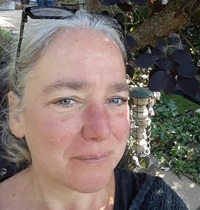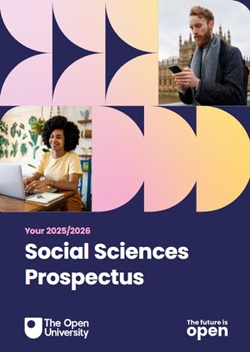Study
The School of Social Sciences and Global Studies is home to a diverse range of teaching across core subjects in the Social Sciences and Arts: we teach 38 modules, offer 39 different certificates, diplomas, undergraduate and postgraduate degrees and in the 2025/26 academic year, the school has over 15,000 students.
Dr Zoe Doye (Director of Teaching)

 The School of Social Sciences and Global Studies (SSGS) is home to a diverse range of teaching across core subjects in the Social Sciences and Arts: we teach 38 modules, offer 39 different certificates, diplomas, undergraduate and postgraduate degrees and in the 2025/2026 academic year, the school has over 15,000 students.
The School of Social Sciences and Global Studies (SSGS) is home to a diverse range of teaching across core subjects in the Social Sciences and Arts: we teach 38 modules, offer 39 different certificates, diplomas, undergraduate and postgraduate degrees and in the 2025/2026 academic year, the school has over 15,000 students.
In bringing together Disciplines from the social sciences and humanities, the School offers a deliberately unconventional combination of disciplinary traditions. The eight Disciplines in the School – Economics, Development, Geography and Environment, Philosophy, Politics, Religious Studies, Sociology, Social Policy and Criminology (SPC) – support a wide range of interdisciplinary and disciplinary modules and enables SSGS to be home to a diverse range of teaching that spans core subjects in the Social Sciences and Arts. We champion the fact that our approach to teaching is interdisciplinary, particularly at Level 1, and this exceptional standard of teaching is informed by established and internationally acclaimed research.
So, what does the School of Social Sciences & Global Studies offer at present? In overview, our School covers Politics & International Studies, Economics, Sociology, Development, Geography and Environment and Environment, Philosophy, Social Policy & Criminology, and Religious Studies. Our undergraduate qualifications include Environmental Studies, International Relations and Criminology, as well as joint degrees such as Politics, Philosophy and Economics, Religion, Philosophy and Ethics, Sociology and Criminology, Criminology and Psychology, Economics and Mathematical Sciences and Geography and Environmental Science and a wide range of certificates and diplomas linked to these degrees. We have several qualifications at postgraduate levels, including our MA in International Politics.
As well as a wide range of qualifications, the school presents 38 modules across the year, including Politics & International Studies, Economics, Sociology, Development, Geography, Environment, Philosophy, Social Policy & Criminology, and Religious Studies as well as range of interdisciplinary level 1 modules that bring together many of the disciplines highlighted above, including D113 Global challenges: social science in action and DD102 Introducing the social sciences. We also offer level 1 modules in Economics - DB125 You and your money and DD126 Economics in context and in Criminology, DD105 Introduction to criminology. Two Disciplines in the School, Religious Studies and Philosophy, contribute to the School of Arts and Humanities’ Level 1 modules, A111 Discovering the arts and humanities and A113 Revolutions.
As a school, we are always looking ahead at what we could do differently, speaking with our students and keeping the dialogue going. We remain open to our students always, and this is essential to ensure that our modules are ones that students find interesting and engaging and the support we offer works for them. We also know that it’s important that students can align their studies with their career aspirations. We are continuing to review our curriculum offering to ensure that our students graduate with the best possible opportunities to excel in their chosen field. Much of our research looks at current movements and trends in society, our behaviour as individuals and consumers, our role as global citizens, and our relationship with the past and how this influences the present. Our aim remains to bring the insights from this research into our teaching and curriculum development as we develop cutting-edge modules and degrees.
Request your prospectus
![]()
Explore our qualifications and courses by requesting one of our prospectuses today.
